Entertaining in style – the California barn where textile designer Sandra Jordan welcomes guests
The rich colors and textures of Sandra Jordan's textiles come to life in her rustic converted barn in California's wine country
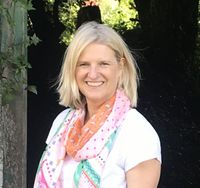
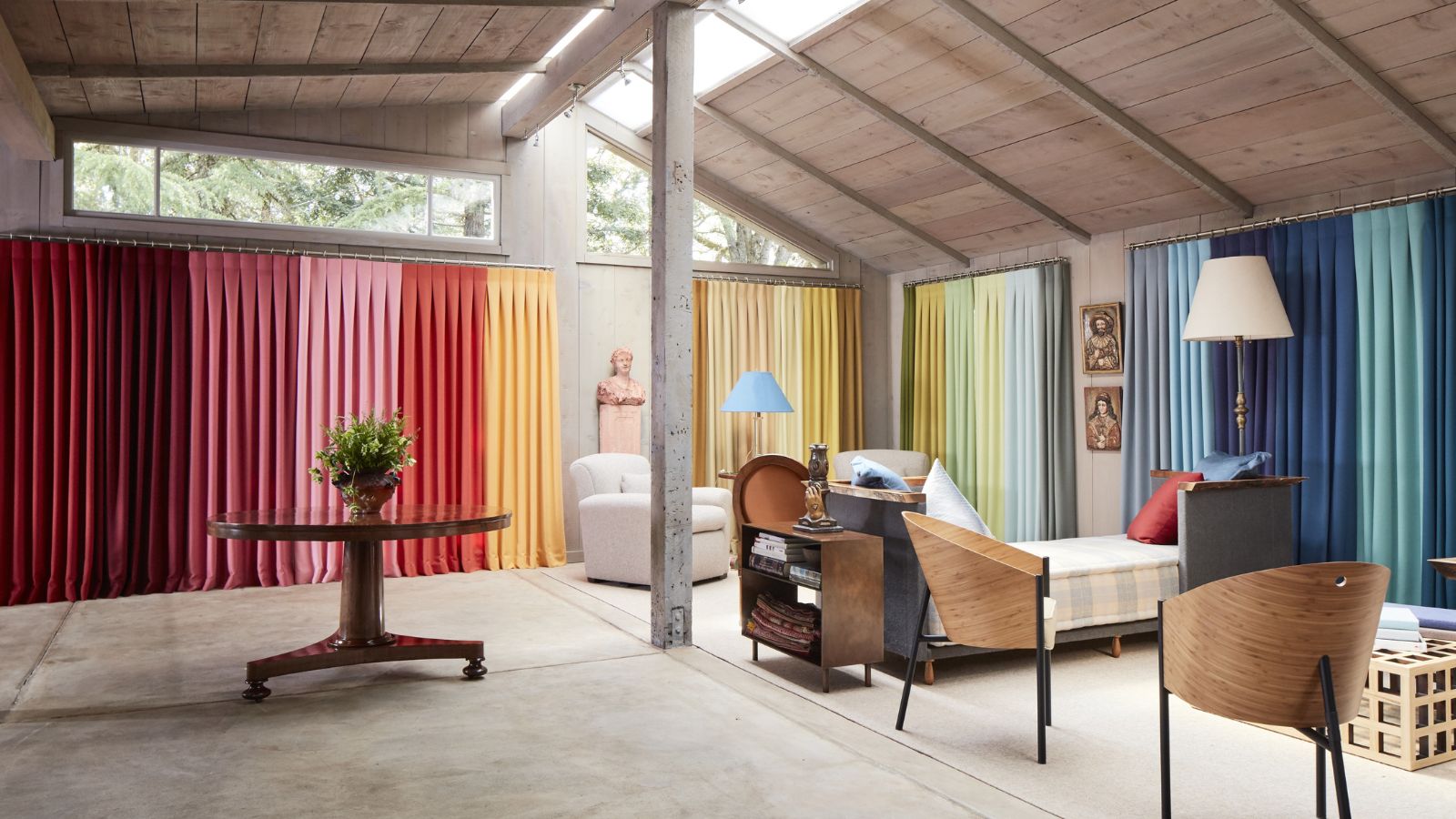
A showcase for fine textiles, color, design, craftsmanship and heritage, and a welcoming space for family and friends, that was Sandra Jordan's vision for the barn on her Healdsburg property in California's wine country. Sandra is the creative force behind Sandra Jordan Prima Alpaca, the first to turn this luxury fiber into textiles for the home, which now feature in design showrooms around the world. Her most recent work focuses on a modern interpretation of Peruvian textile traditions, honoring the heritage of her birthplace.
Naturally, the converted barn space would feature her brand's homeware in all their glorious shades but Sandra's interior design ideas went further than that, with many more elements at play. She called on interior designer Gary Hutton to come up with a way of drawing together the wide-reaching strands of her inspiration and create a harmonious, if eclectic, open-plan space for visitors to enjoy. The result is exactly that, one great room that captures many moods and that has striking artwork and artefacts at every turn. There are references and style notes from California wine country living, Peruvian culture, international design, hand crafts, folk art, Latin colors and, of course, Prima Alpaca textiles.
Take the tour: there's plenty to catch the eye in this open-plan space.
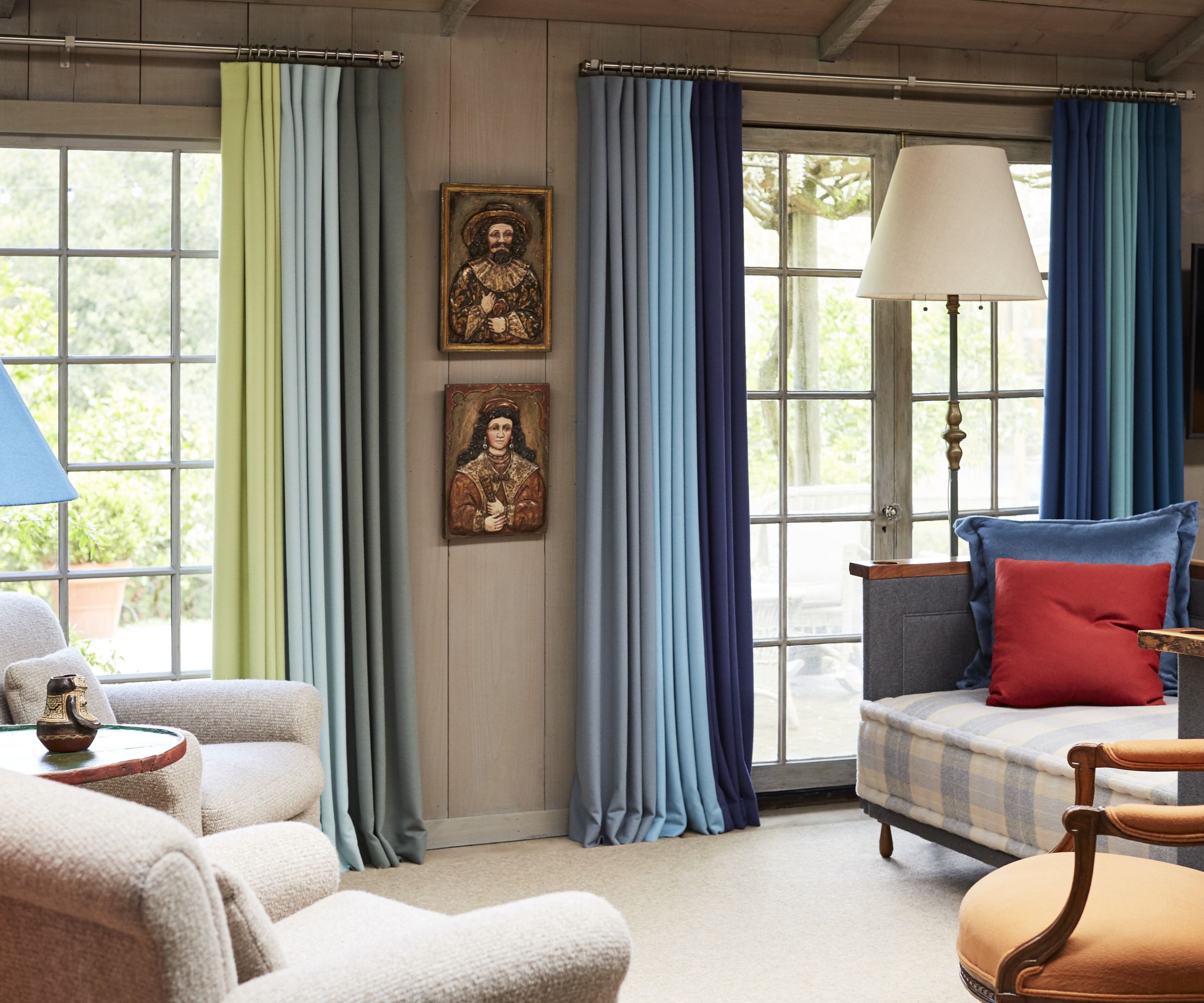
Living room ideas here are inspiring. There are three distinct seating areas in the great room, of what Sandra has dubbed 'The Casita'. The seating spaces are arranged along one side of the barn, in linear succession, each with a slightly different look and feel.
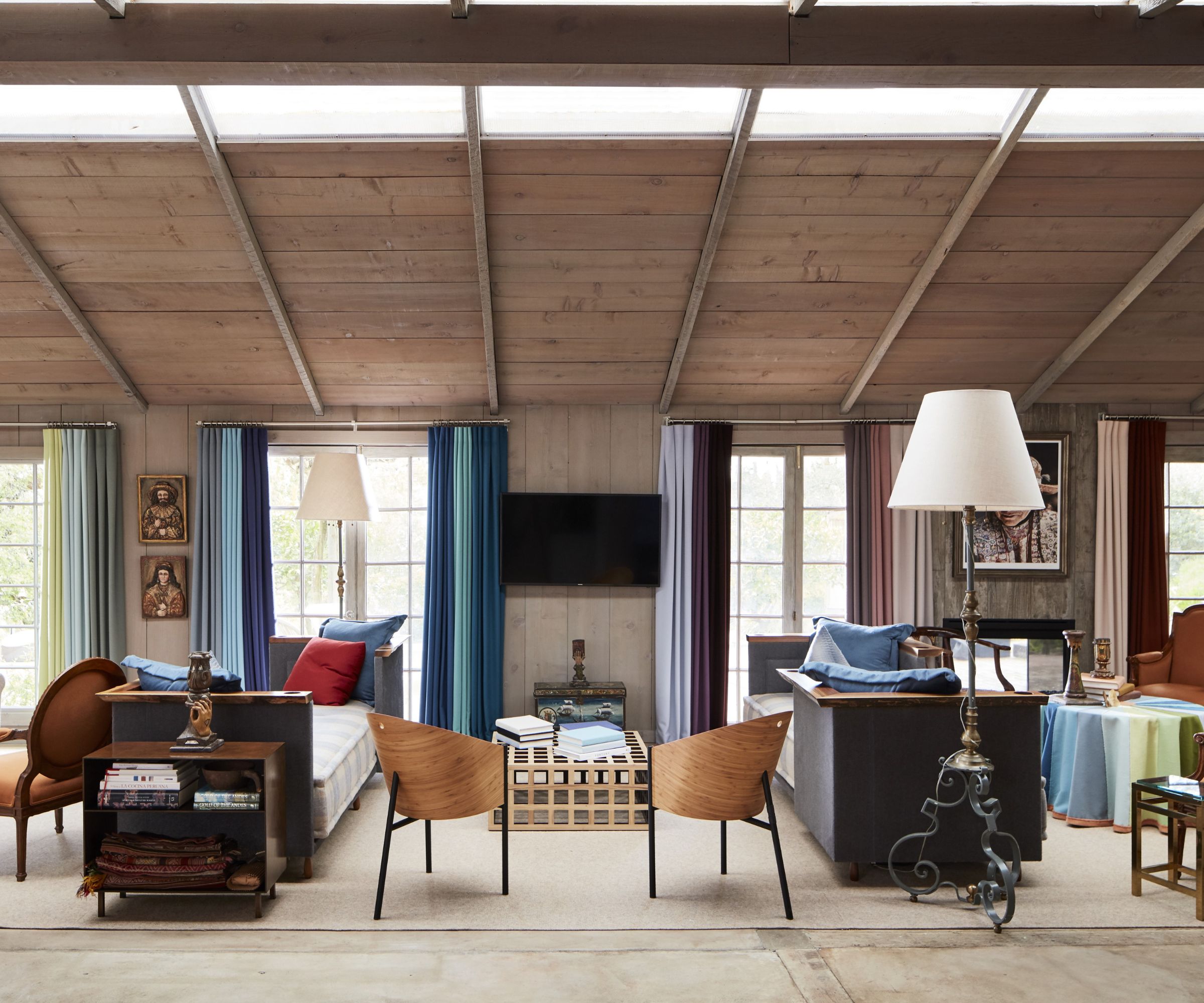
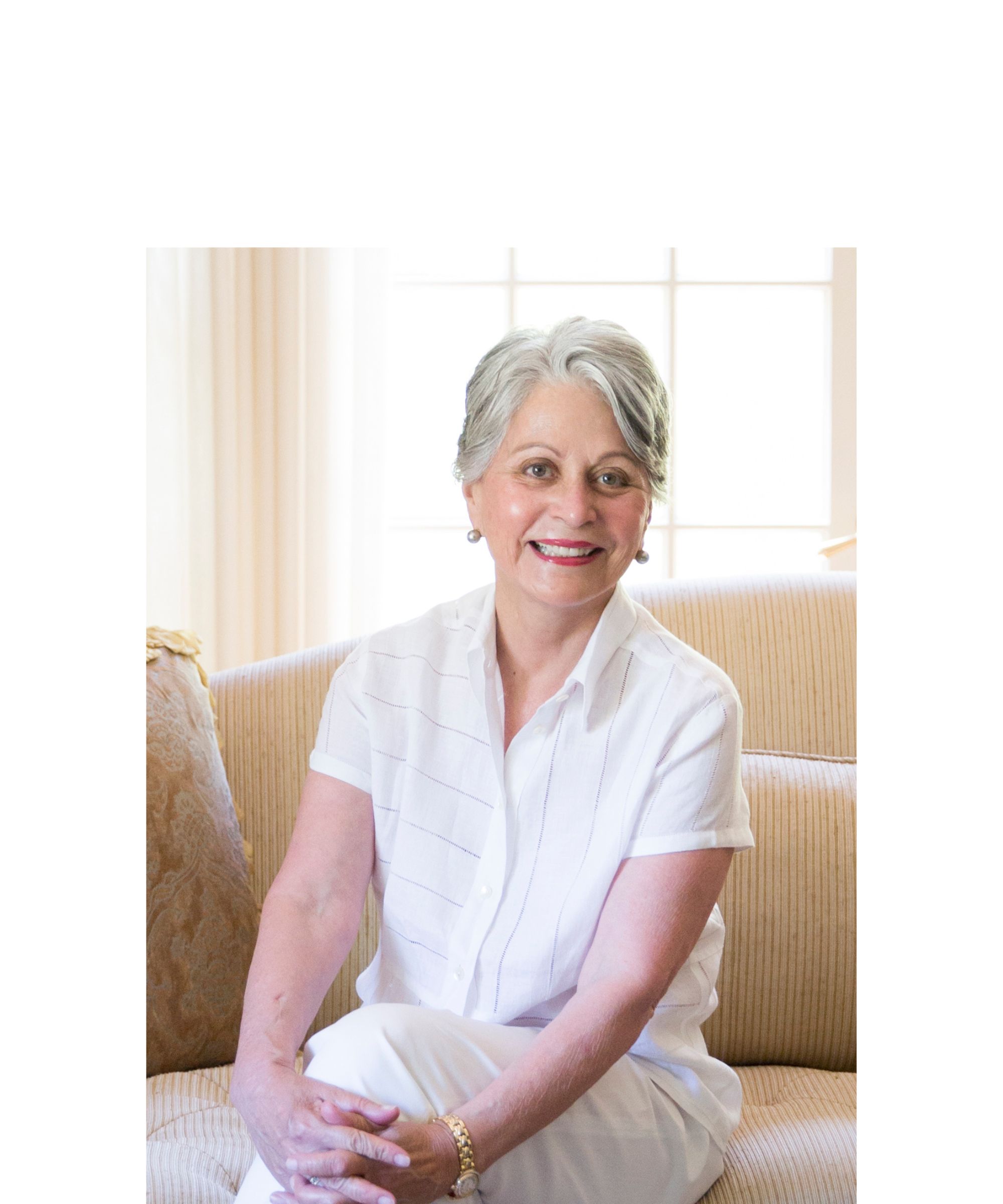
For Sandra Jordan an appreciation for exquisite old world craftsmanship developed during years of exposure and observation, research and study, travel, and teaching. As a child in Peru, Sandra was exposed to many artisan crafts traditional in that part of the world, thus began her lifelong passion for time-honored art forms from around the globe, and for the incredible diversity of products born out of these traditions. In 2006, Sandra added a luxurious line of Prima Alpaca™ textiles for the design trade. The collection is now represented in showrooms across the US, Canada, Mexico, Australia, New Zealand, Russia and Europe.
How then did the designers balance the textiles' vibrant colors alongside existing furniture, artwork and accessories, to create a cohesive whole? 'Making the background as neutral as possible was key to this approach,' says Hutton. 'The concrete floors were stained slightly so that they linked visually to the grey stain on the wood walls.'
Modern elements, such as Philippe Stark’s bent plywood three-legged Costes chair (centre of picture above) rub shoulders with Peruvian heritage pieces in the space. On either side of the Stark armchairs are two Jiun Ho daybeds, while the seating in this area is all grouped round a Cubo Libre coffee table by Claudia Moreira Salles.
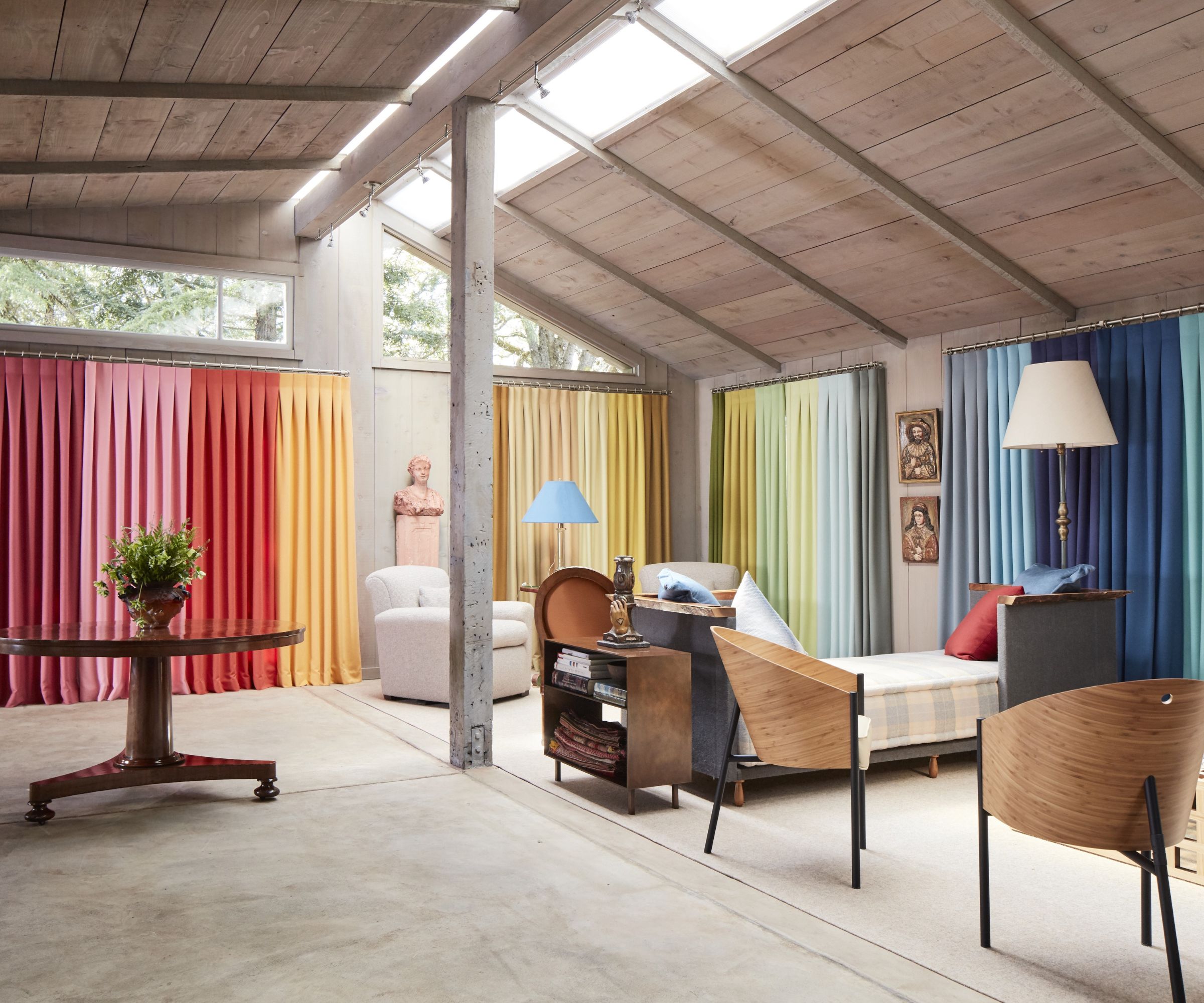
Gary Hutton's design team used the incredible Prima Alpaca colors in a progression that begins with cool, greyed-out shades in the north end of the barn and gradually moves into brighter sun-drenched colors in the western side of the space.
Design expertise in your inbox – from inspiring decorating ideas and beautiful celebrity homes to practical gardening advice and shopping round-ups.
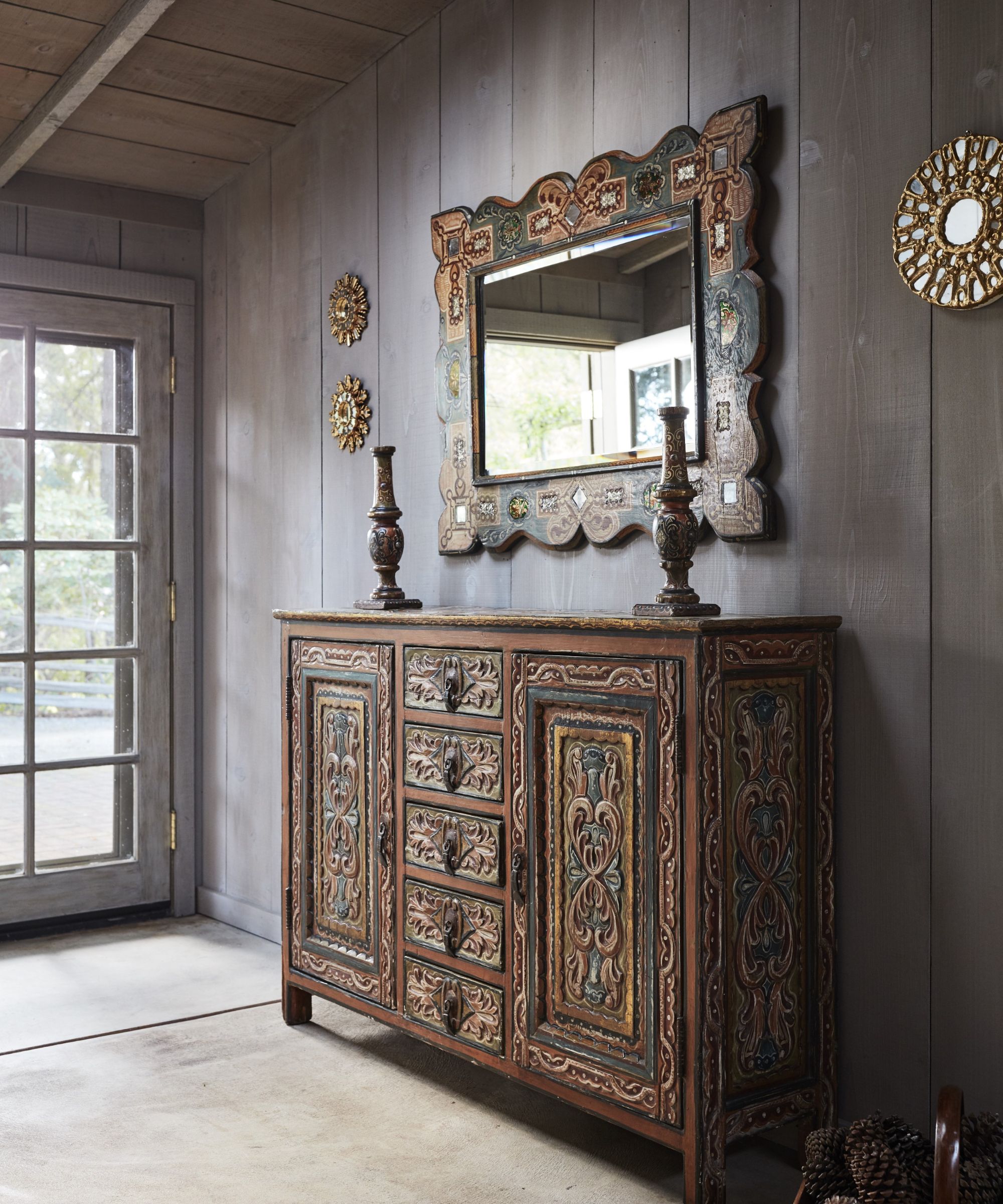
Hallway ideas in the entrance subtly and quietly set the tone for the sensory experience awaiting visitors in the great room. The highly decorative painted chest and mirror are from the region of Ayacucho, from the Peruvian highlands. These heritage pieces have been part of Sandra's collection for some years. 'Time is measured differently there,' says Sandra. 'The artisans even paint the back and the inside of all the pieces of furniture.'
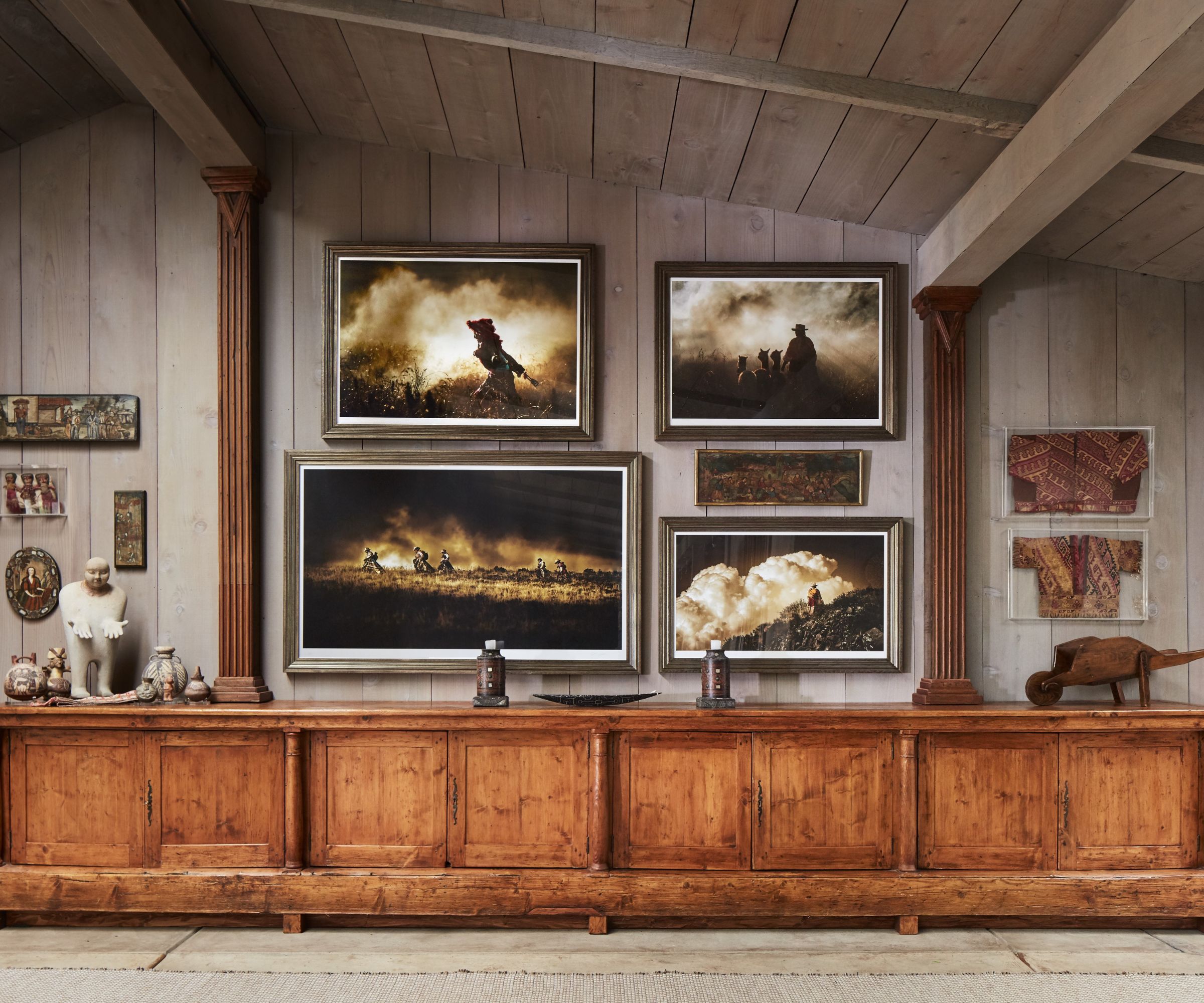
Dominating the barn's east wall is a striking French enfilade found in a dress shop in Paris, with the tape measure still in place. The 19th-century cabinet is made of Norwegian pine and is an unusual piece, not only because of the number of doors but also because French furniture of that time rarely used pine. It's the perfect height for a display of Sandra's treasured Peruvian artworks, ceramics and artifacts.
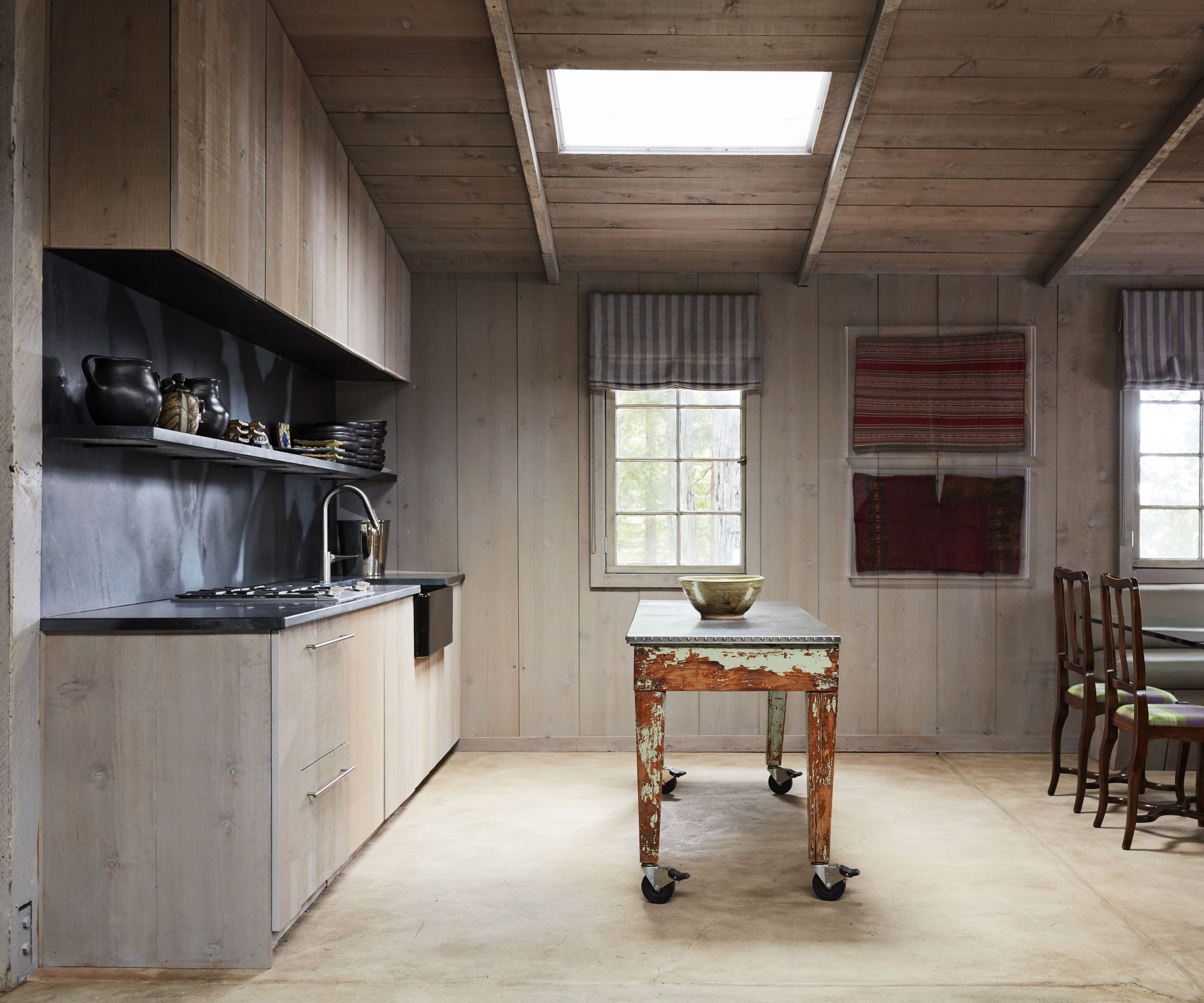
Kitchen ideas for this open-plan space continue the neutral backdrop of the barn's walls and floors, with cabinetry in pale wood setting a smart contrast with the dark soapstone backsplash and countertops. Roof lights here, and down the spine of the barn, bring in extra light to the property's hard-to-reach corners.
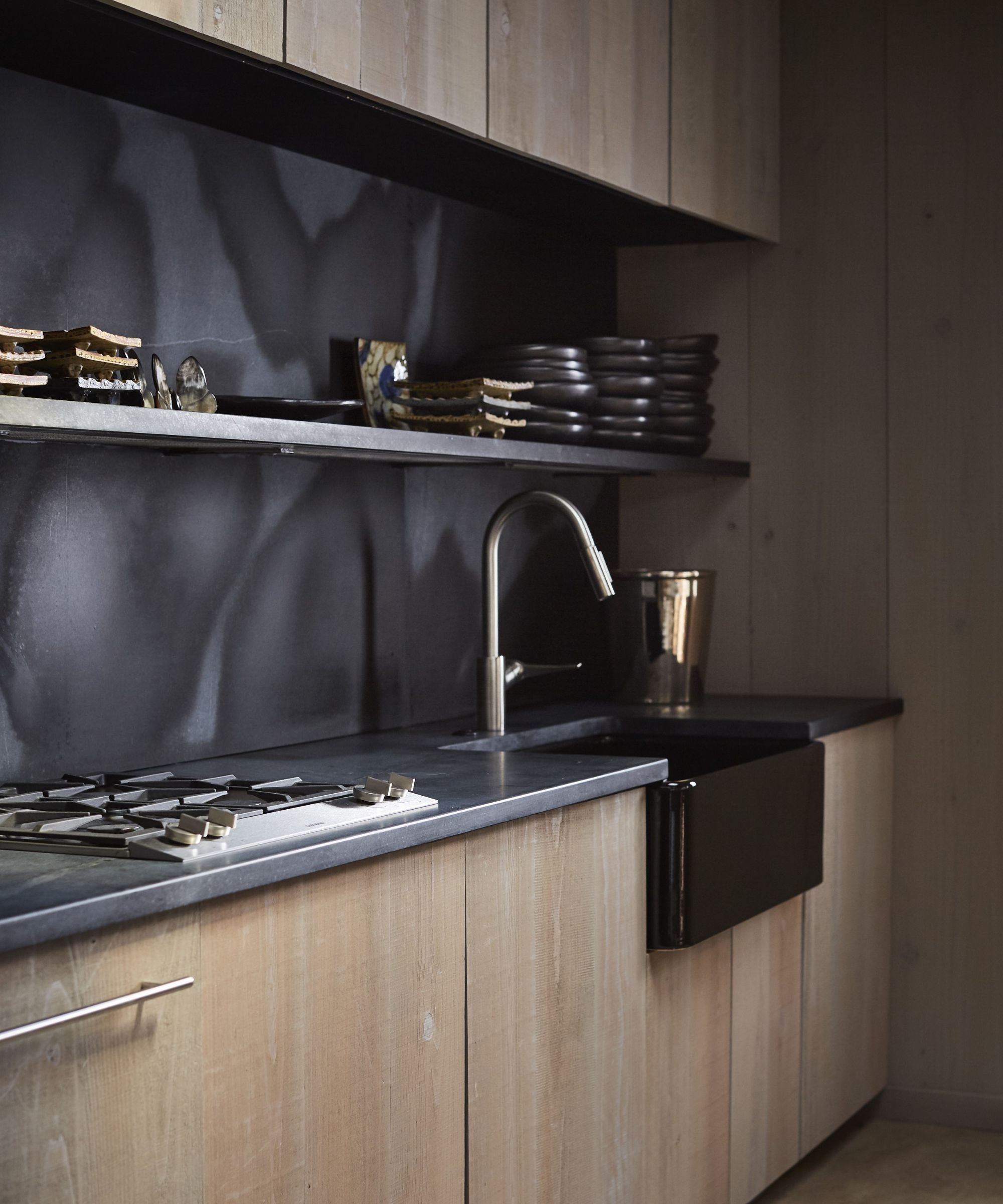
Dark soapstone countertops and splashbacks, and a black ceramic sink create a stylish and professional standard kitchen in this home-from-home for guests.
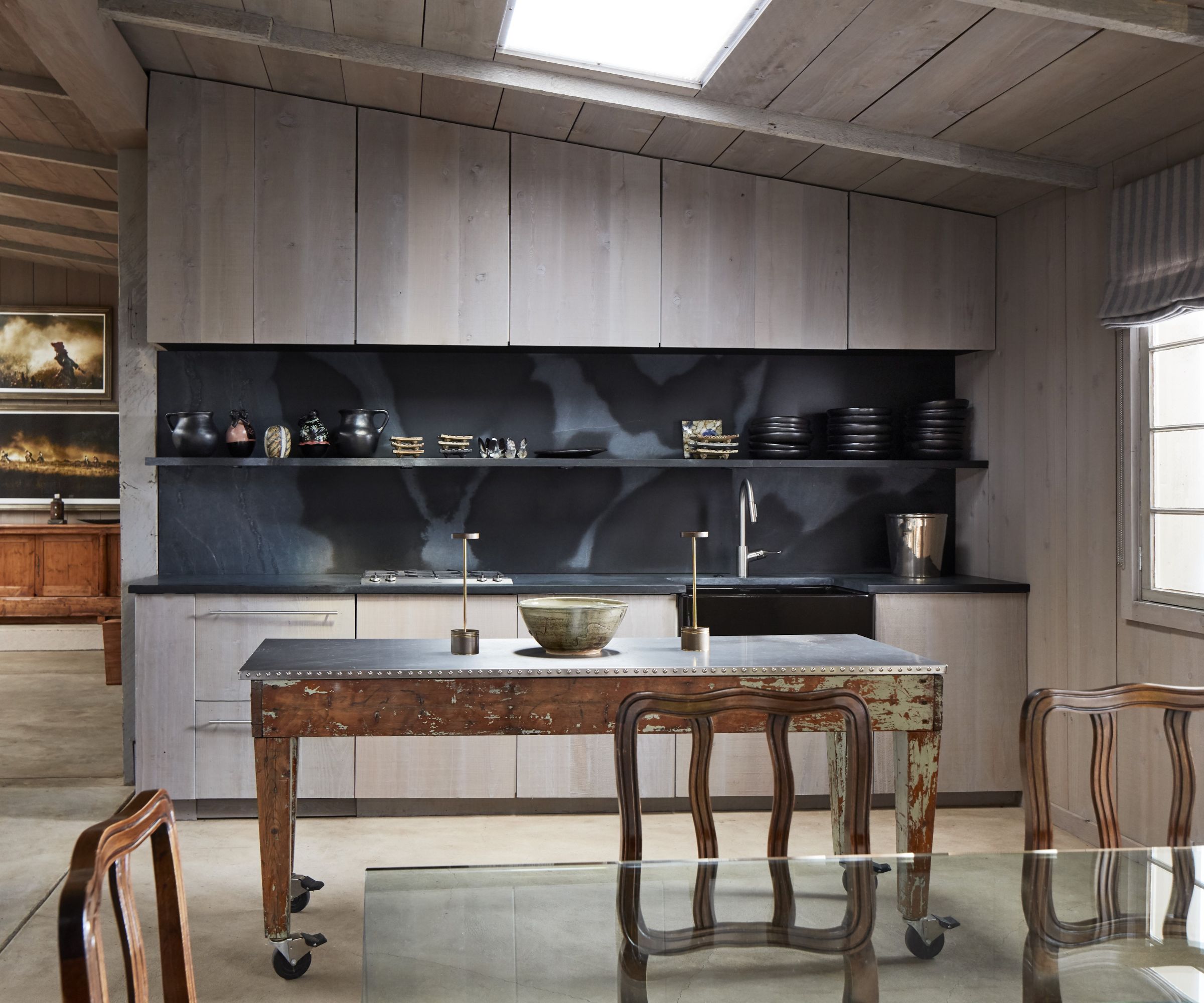
A movable zinc-topped table with castors is used as an island and bridges the gap between workspace and dining space in the kitchen. It also provides a useful extra surface for food preparation in the compact kitchen.
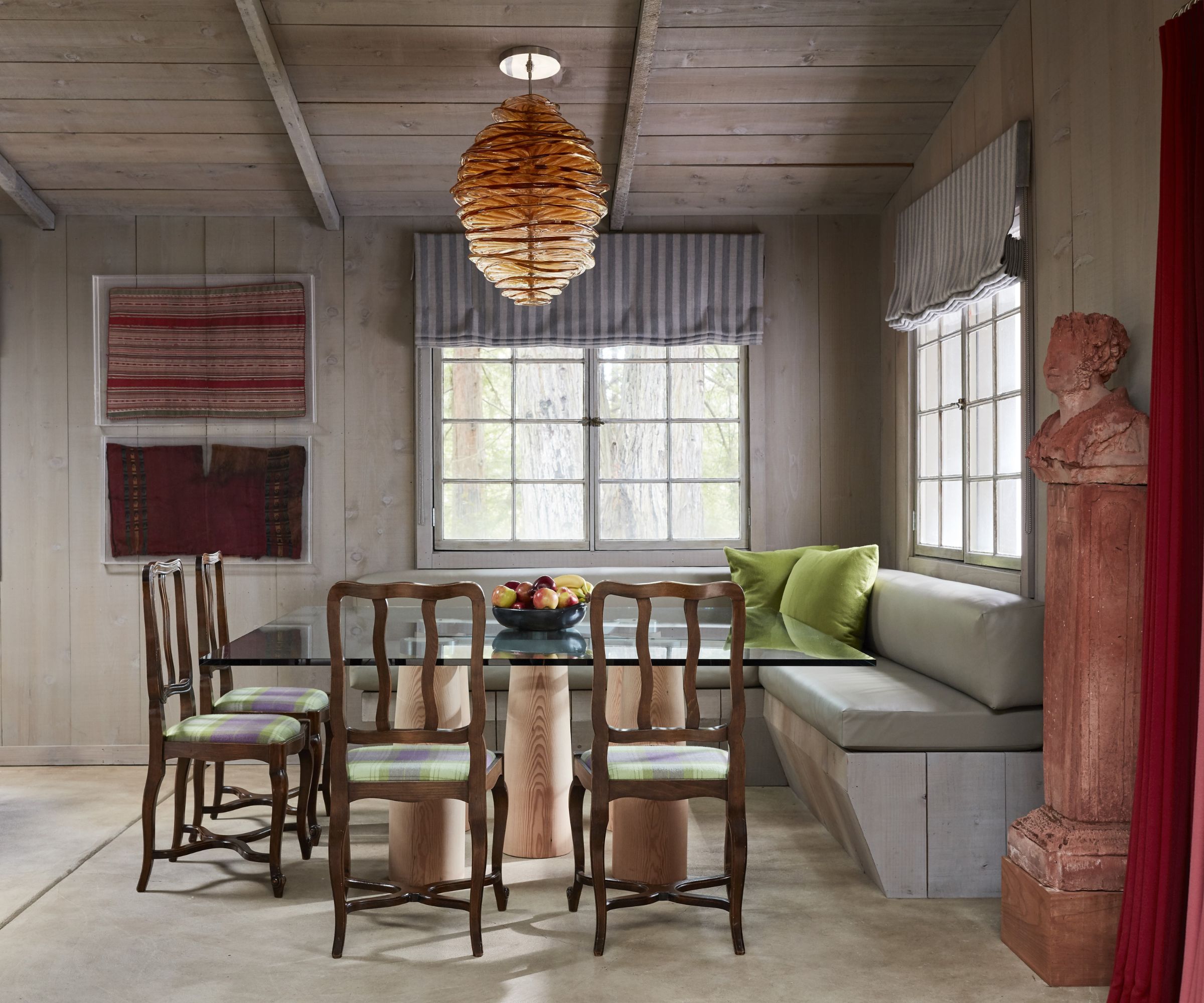
Traditional and modern style notes merge to great effect in designer Gary Hutton's dining room ideas. The table is a custom-made Pier dining table, from the designer's own furniture brand, with legs in turned, reclaimed, unfinished fir. Traditionally styled French late-19th century dining chairs create a counterpoint to the modern table and striking pendant light. Light Nest is a bespoke design by Bel Vetro, with stacking, undulating, amber color discs.
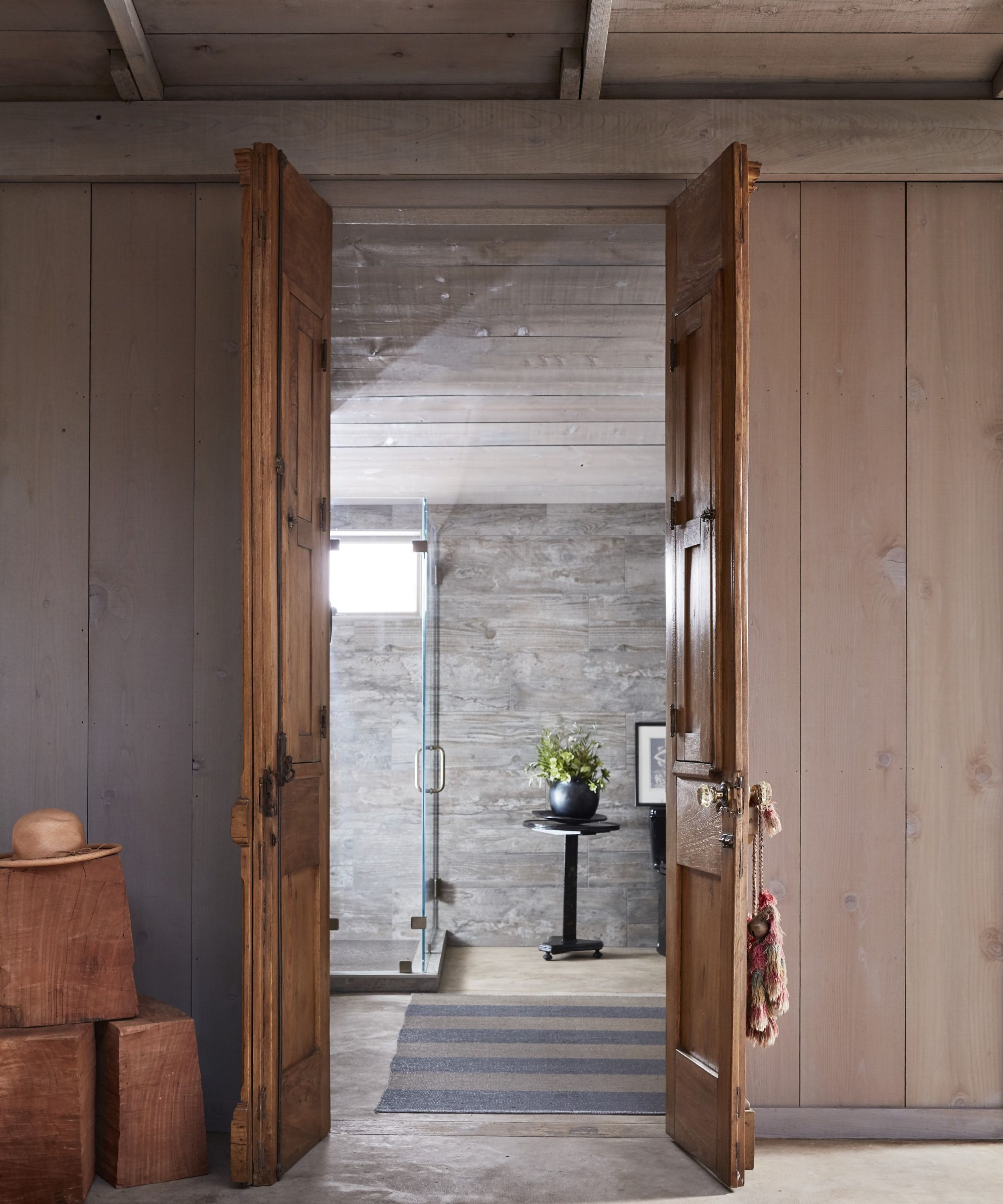
A pair of Peruvian colonial doors open to the bathroom, with a color scheme inspired by local stone. The fixtures and fittings are all from Waterworks. A striped rug, also from Waterworks, adds soft contrast.
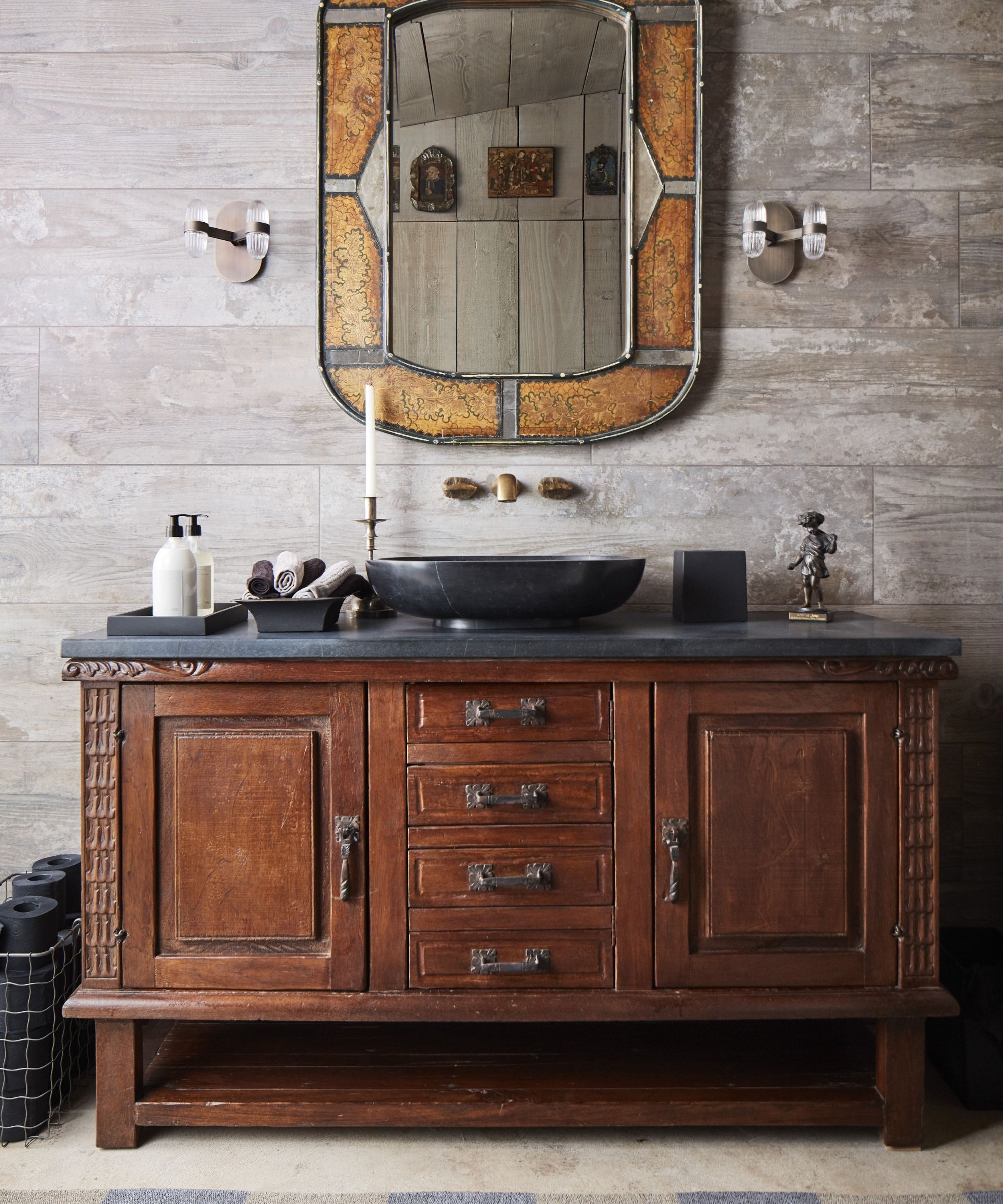
Bathroom ideas also blend the very latest modern designs – black sinks and hardware – with traditional, pre-loved pieces such as the dark wood sideboard that's found new purpose as a vanity unit.
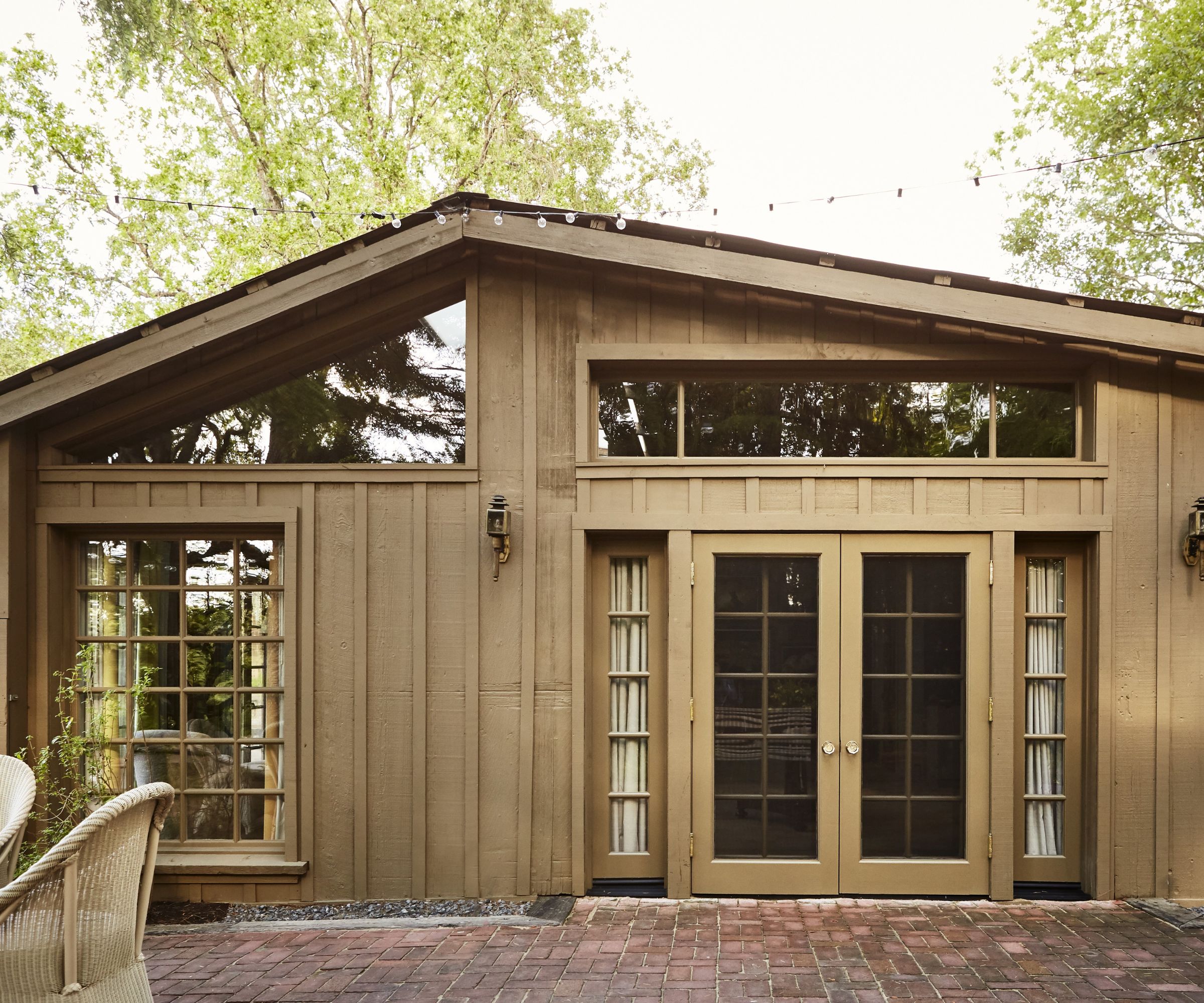
The barn's unassuming exterior fades into the Sonoma County landscape, and belies the riot of color and textures inside.
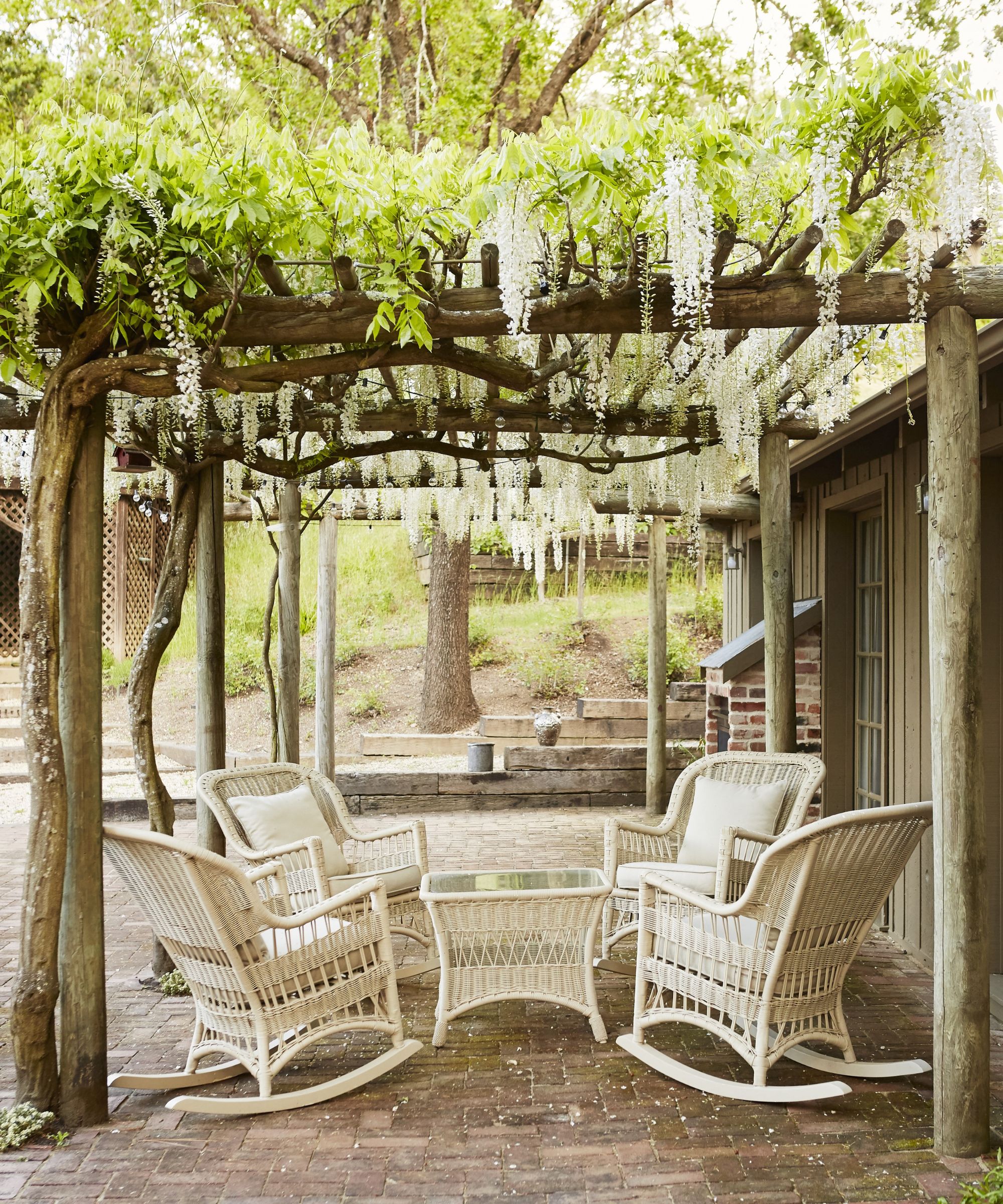
Sandra Jordan wanted to ensure that her guests would enjoy outdoor living and dining just as much as the indoor space. This idyllic backyard setting, under a pergola dripping with white wisteria, is the perfect spot to sample a glass or two of the region's finest vintages. On-trend white wicker furniture completes the scene.
Homeowner and textiles: Sandra Jordan Prima Alpaca
Interior design: Gary Hutton
Photographs: John Merkl
Karen sources beautiful homes to feature on the Homes & Gardens website. She loves visiting historic houses in particular and working with photographers to capture all shapes and sizes of properties. Karen began her career as a sub-editor at Hi-Fi News and Record Review magazine. Her move to women’s magazines came soon after, in the shape of Living magazine, which covered cookery, fashion, beauty, homes and gardening. From Living Karen moved to Ideal Home magazine, where as deputy chief sub, then chief sub, she started to really take an interest in properties, architecture, interior design and gardening.
